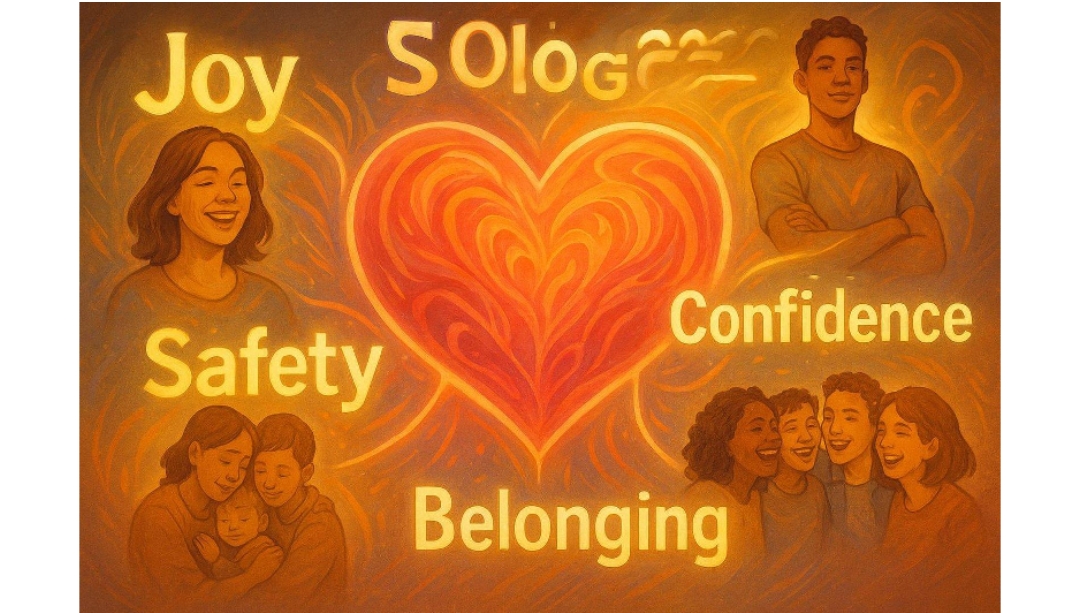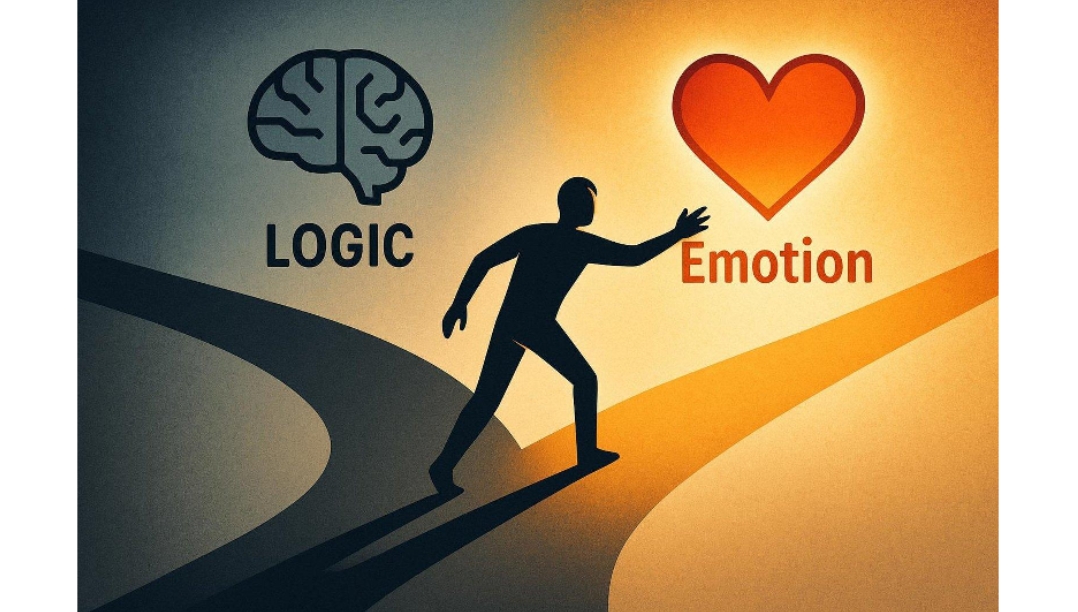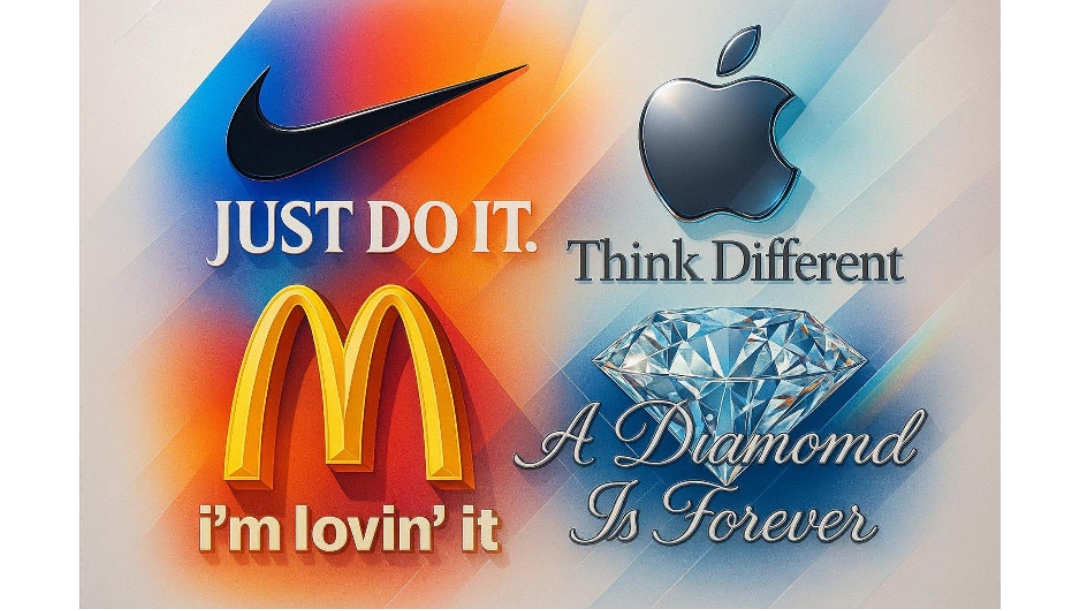The reason the world’s catchiest brand slogans stick with us isn’t just because they sound good-it’s because they make use of basic human psychology. These short phrases are carefully shaped to touch on our emotions and instincts. They influence how we think and feel about a company, shape our memories, and even what we decide to buy.
Nike’s “Just Do It” and McDonald’s “I’m Lovin’ It” go beyond catchy words; they create a bond that makes us want to take action. If you want to know more about how brands use these smart tactics, check out “The most Amazing brands & slogans.”
Ever since “Beecham’s Pills: Worth a guinea a box” appeared as the first known advertising slogan, companies have worked on getting inside the mind of the buyer.
That 19th-century slogan suggested high value by linking quality with a high price-a move based on the basic idea that people often think expensive things must be better. Even back then, marketing was about understanding what really drives people’s choices.
How Does Psychology Shape Brand Slogans?
Brand slogans, together with a name and logo, make up a company’s public face. They do more than just grab attention-these slogans are meant to feel familiar and reassuring, sticking in our minds. What really matters, though, is the psychology that helps a plain phrase become a tool to build trust, make a brand stand out, and shape consumer habits.
Slogans often work through “priming”-they quietly steer our thoughts and actions, working in the background to influence how we see a brand. If it becomes obvious that we’re being pushed one way, it can backfire, making us dislike the company. That’s why this type of messaging works best if it feels natural and not forced.
How Do Slogans Affect the Way We See Brands?
Slogans grab attention and make consumers curious. They dress up the brand’s key promise in a few words, helping people know what’s on offer and why it’s special. This helps us feel more certain about what to expect from a brand and builds trust quickly-important when there are so many choices out there.
Slogans act as a shortcut by explaining what makes a brand different in an instant. If a slogan communicates a business’s main strengths, it stands out from similar products and stays in our memory.
Why Are Some Slogans Easier to Remember?
Memorable slogans often have certain features and create a feeling. Short slogans or ones with common, simple words are often liked more, but ones that are a bit longer and use the brand name or unusual words are easier to remember (even though they might not be as popular). Brands have to decide which is more important for their strategy.
Our brains tend to pick options we remember most easily (“the availability heuristic”). Using rhyme, rhythm, repeated sounds, or even music helps slogans stick. These tools make slogans catchier and easier for us to recall.
What Feelings Do Slogans Trigger?
Good slogans make us feel something. That’s important because emotions affect what we choose. By bringing out positive feelings, slogans create a strong bond with buyers and motivate them to act.

Slogans might appeal to our need to achieve something, belong, or simply be happy. If a slogan is funny or joyful, it gives us a small bit of pleasure, which we naturally want more of. Slogans can hint at joy, safety, inclusion, or confidence-matching deep needs we all share.
What Psychological Tools Make Slogans Work?
Slogans don’t just happen to be effective-they use several key psychological ideas. These methods, whether used on purpose or not, help decide whether people like, remember, and act on the slogan’s message. How we think, feel, and process information plays a huge part in getting a slogan to work for a brand.
If brands understand how these tactics work, their messages do more than just inform-they connect on a deeper level.
Simplicity and Memory
We can only hold a few things in our minds at once, so simple slogans are the easiest to remember. Studies show that the best-remembered slogans are about four words long. If slogans are longer, we tend to forget them because they’re harder to process.
A clear, short slogan groups brand ideas together, making it easier for us to store and remember information about the company later.
Repetition Builds Familiarity
The more we hear or see something, the more we like it. Slogans get repeated on ads, packaging, and social media, building trust over time. Using jingles or certain sounds makes slogans stick even more, combining what we hear and what we say or sing.
Grouping Key Information
Since we remember only a handful of things at once, a clear slogan helps our minds “bundle” its main points together. For instance, FedEx’s “When it absolutely, positively has to be there overnight” tells you exactly what you need to know-speed and reliability-in a neat package without overwhelming the listener.
Emotional Impact
Feelings strongly guide what we choose to buy. Slogans that make us feel happy, hopeful, safe, or proud build a trusted, lasting link with consumers.

When a slogan speaks to our hopes or dreams, the positive vibe becomes connected to the brand, giving it a special place in our minds.
Using Social Proof
People often do what they see others doing. If a slogan hints that a company is popular or trusted, others are more likely to try it too. British Airways’ “The world’s favorite airline” is a good example-it suggests everyone else already made their choice, making it easier for new customers to follow.
Offering Value and Generosity
When brands give something-in the form of promised savings or a helpful benefit-consumers naturally feel like giving back, such as by considering a purchase. GEICO’s “15 minutes could save you 15% or more on car insurance” creates this loop by promising a clear reward for a small investment of time.
Resolving Inner Conflict
Sometimes slogans create a little pressure to get us to act. Hallmark’s “When you care enough to send the very best” makes you feel you should show you care by buying their card, making it uncomfortable to choose something cheaper. Brands use this to gently push buyers to pick their products to feel better about themselves.
What Qualities Make a Brand Slogan Great?
While psychology is the engine, the actual features of a slogan make it memorable and useful. The best slogans share some key qualities-they aren’t just appealing at first, but they last over time and work in different situations or cultures.
The top slogans have clear wording, stand apart from rivals, and are matched to their audience’s language and values.
Short and Clear
Great slogans are easy to understand and brief. They make the company’s offer obvious without extra explanation. If a slogan is fuzzy or complicated, it won’t have much impact.
| Slogan Length | Average Words |
| Most liked | ~5 words |
| Best recalled | ~4 words |
Stands Out from Competitors
A memorable, specific slogan helps a brand find its own spot in the market. The best ones make it clear what’s different or better about one company compared to others. This makes the brand stand out in a crowded space and be easier to remember.
Consistent Over Time
While some brands update slogans as times change, the most successful ones stick with one for years. Nike’s “Just Do It” has lasted since 1988 for a reason-consistency helps build stronger connections and trust over time.
Fits the Audience’s Language and Culture
Good slogans connect with people’s everyday life, using words and patterns that feel natural to their age group and culture. If a slogan doesn’t “feel right” for the audience, it won’t work. Language, length, and even word choice can make a big difference in which slogans people remember or like.
Classic Slogans and the Psychology Behind Them
To see how these ideas work in real life, let’s look at some famous slogans and the reasons why they’re so effective.
| Brand | Slogan | Main Tactic |
| Nike | Just Do It | Motivation and Action |
| McDonald’s | I’m Lovin’ It | Emotional Connection |
| Apple | Think Different | Aspiring Identity |
| L’Oréal | Because You’re Worth It | Self-Esteem, Empowerment |
| KFC | It’s Finger Lickin’ Good | Sensory Appeal |
| GEICO | 15 Minutes Could Save You 15% or More | Specific Value, Reciprocity |
| De Beers | A Diamond Is Forever | Permanence, Tradition |
Nike: Just Do It
This slogan urges people to take action, whatever their goal is. It creates a sense of confidence and possibility. Nike’s message makes us believe we can achieve more, which works whether you’re an athlete or not. Even though it has an odd backstory, the phrase became a worldwide motivator.
McDonald’s: I’m Lovin’ It
Here, McDonald’s isn’t just talking about food-they’re promising a positive feeling. The slogan uses emotion to connect everyday meals to joy and satisfaction, making people think of good times when they eat at McDonald’s.
Apple: Think Different
This phrase tells people that Apple is for creative thinkers and innovators. By encouraging customers to “Think Different,” Apple invites them to feel special and unique. The unusual wording itself suggests original thinking.
L’Oréal: Because You’re Worth It
This slogan speaks directly to the customer, helping them feel valued and deserving. Buying and using L’Oréal becomes a way of affirming their own worth.
KFC: It’s Finger Lickin’ Good
The slogan paints a vivid picture, making customers imagine tasty food and good times. It’s lighthearted, making KFC seem friendly and focused on enjoyment.
GEICO: 15 Minutes Could Save You 15% or More
This slogan gives a specific, easy-to-grasp benefit. By promising something valuable for a small effort, it encourages people to act quickly.
De Beers: A Diamond Is Forever
This simple phrase linked diamonds to ideas of lasting love and tradition, making them the default choice for engagement rings. The slogan’s promise of “forever” makes the product more meaningful.
How Do Slogans Steer Customer Choices and Loyalty?
Slogans aren’t just about being recognized-they shape what we buy and how loyal we stay. A good slogan brings a brand to mind at the right time, builds a sense of belonging, and encourages repeat business.
Boosting Awareness and Recall
Slogans make brands easier to remember. Devices like rhyme and repetition help with this. For example, “Just Do It” instantly brings up Nike’s name and logo.
Impact on Buying Decisions
A slogan that shows clear advantages or touches on a key desire can be the deciding factor for a customer. If it makes people feel good or confident, they’re more likely to pick that brand-even without thinking much about it.
Creating a Sense of Community
Great slogans let customers see themselves as part of a group. Apple’s “Think Different” and Nokia’s “Connecting People” make customers feel part of something bigger, which can lead to stronger loyalty and recommendations.
Tips for Writing a Psychology-Based Slogan
Good slogans take planning. Knowing who you want to reach, what reaction you want, and what language will connect with them is key. Here’s how to get it right:
- Know Your Audience: Target your language and message for the people you want to reach. Address their specific needs, experiences, and hopes directly.
- Blend Emotional and Rational Appeals: Combine a feeling (like happiness or safety) with a practical benefit (like saving money).
- Use Simple Language Tricks: Rhymes, repeated sounds, or clever wording help slogans get remembered. But bear in mind, being catchy doesn’t always mean being easy to remember-sometimes a longer or more detailed slogan with the brand name works better for sticking in people’s minds.
- Test and Adjust: Try out different slogans. Ask real users for their reactions, and use tools like surveys to see which one works best. Adjust as needed for clarity, feeling, and lasting power.
Main Points: What Makes a Slogan Stick?
The most memorable slogans aren’t just clever-they push the right psychological buttons. They tap into real emotions and needs, speaking in a simple, clear, and relatable way. By matching the words to our desires for happiness, connection, and meaning, these slogans make brands unforgettable.
A truly powerful slogan sells an idea, feeling, or identity as much as a product. It creates a lasting bond and makes a brand feel like a natural choice, not simply an option.






























